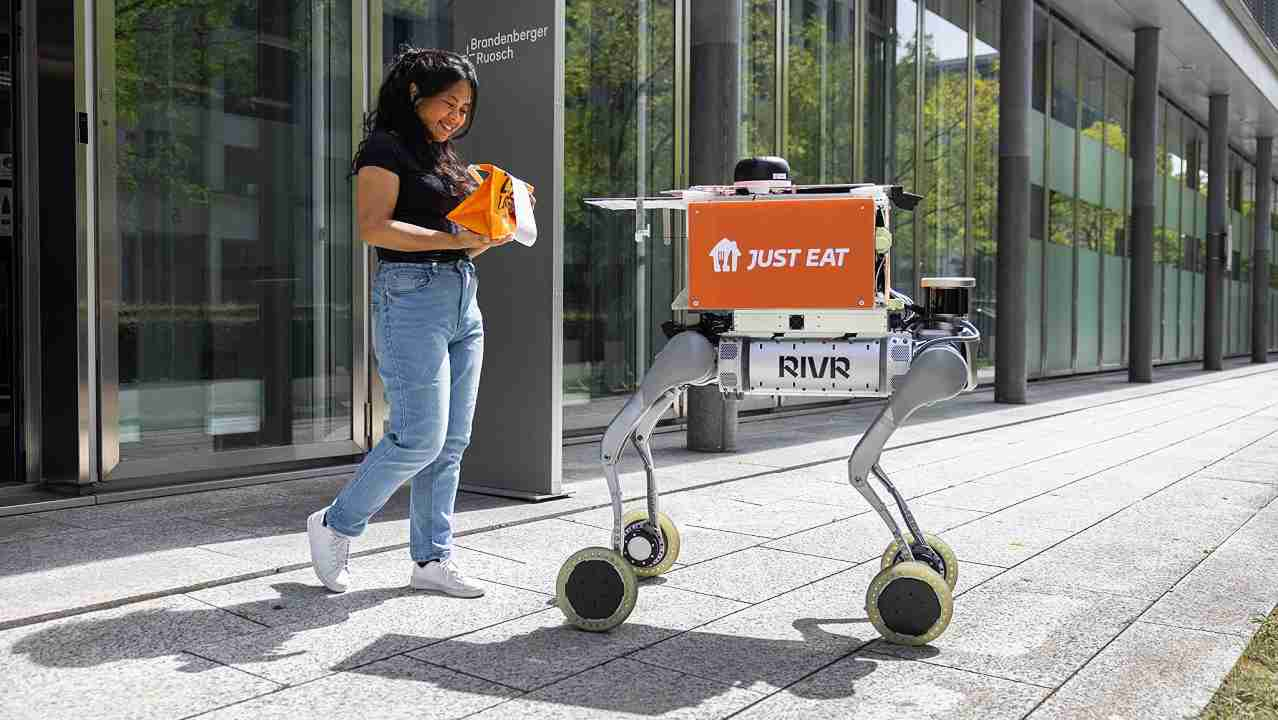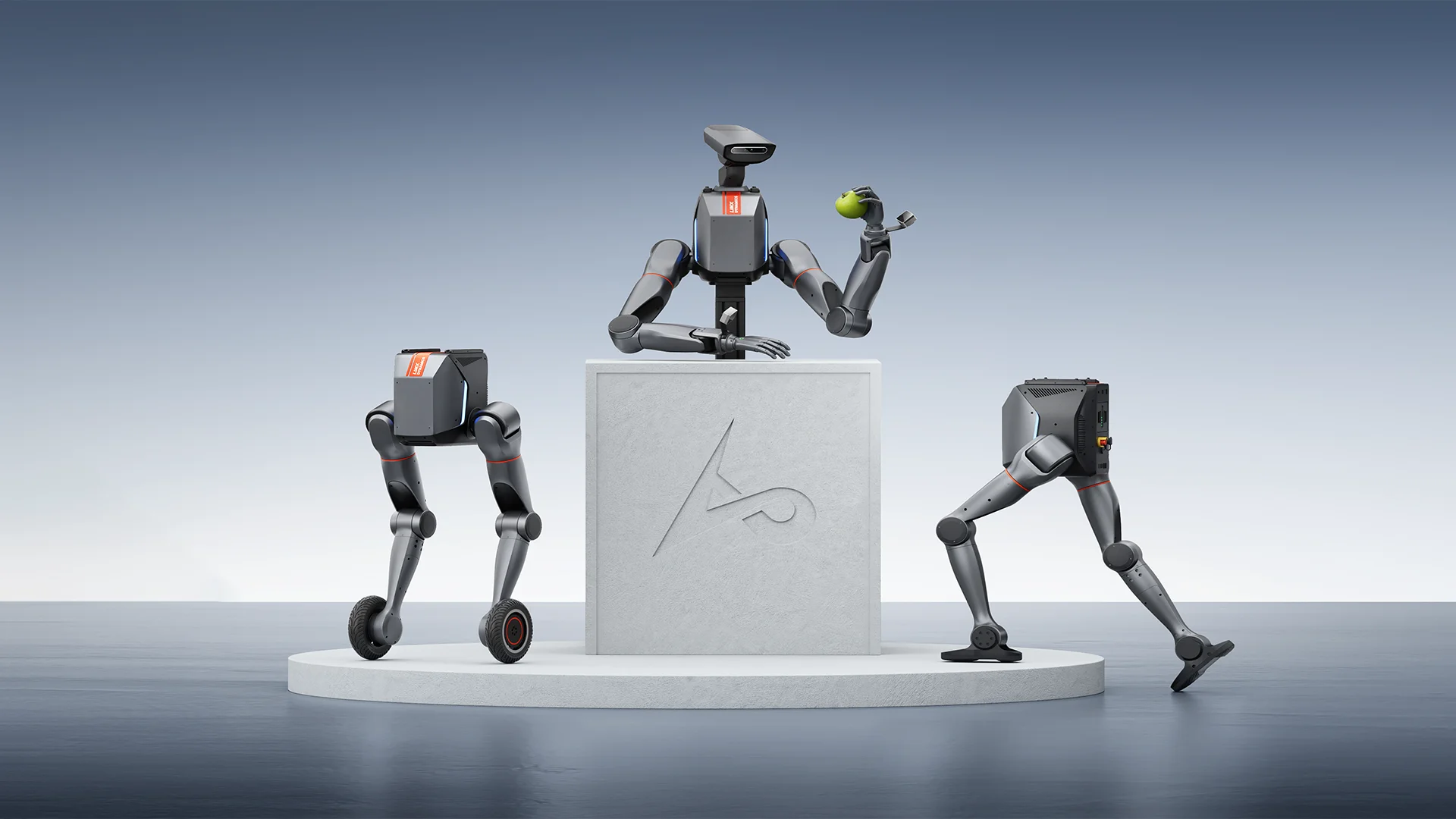In Zurich, those who order food for home delivery might find it brought not by a courier, but by an agile four-legged robot. Just Eat, a giant in the food delivery industry, has launched a futuristic last-mile delivery experiment, introducing a fleet of “robot-dogs” developed by Rivr, an innovative robotics company spun off from the prestigious ETH Zurich. These automatons, guided by advanced artificial intelligence, are designed to move autonomously through the complex urban fabric.
How the delivery of the future works
The core of Rivr’s technology is “Physical AI,” a system that allows the robots to perceive, understand, and interact with their surroundings in real-time. They are capable of overcoming obstacles like curbs and trash cans, avoiding pedestrians, and even climbing up and down stairs. Designed to operate in any weather condition—rain, snow, or heat—they can reach a speed of about 15 km/h.
The process for the customer and the restaurant remains unchanged. The restaurant places the order in the robot’s cargo compartment, a 40-liter insulated container, and the customer receives a notification upon its arrival. Every movement of the robot is constantly monitored by a Rivr operations center, ensuring safety and supervision. The trial is already active with the Zekis World restaurant in Zurich.
A global innovation strategy
This initiative is not an isolated case but is part of Just Eat’s broader strategy to explore the future of logistics. As the company explains, this project “completes our journey toward innovative delivery options.”
Another pillar of this vision is already operational in Ireland, where Just Eat, in collaboration with the company Manna Aero, has launched a drone delivery service. These aircraft can carry a load of up to 4 kg while flying at over 70 km/h, and they deliver the package via a pulley system in about three minutes, without needing to land.
A path already started: precedents in Europe
The idea of automated deliveries is not new. As early as 2022 in Milan, the company Yape tested a self-balancing two-wheeled delivery robot for the last mile. The following year, in 2023, Carrefour in Belgium also launched a similar project, demonstrating a growing interest from the retail sector in these technologies.
A shared vision for the cities of the future
According to the leaders of this innovation, we are witnessing a monumental shift. Marko Bjelonic, CEO of Rivr, describes it as “a glimpse into the future, where automation naturally integrates into our cities.” For Zornitsa Chugreeva of Just Eat, the goal is “to make daily life more convenient,” and technological innovation is the key factor in achieving this vision and improving the experience for the entire ecosystem.






